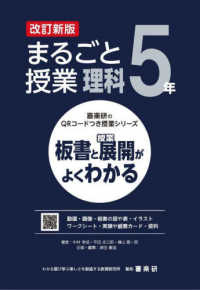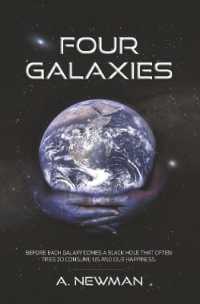- ホーム
- > 洋書
- > 英文書
- > Politics / International Relations
Full Description
Empire and race have become the most discussed - and most problematic - subjects in political and historical discourse. It is now an unquestionable orthodoxy both in academia and in progressive political discourse that European colonial empires - particularly the British - were uniquely evil, the West's 'original sin', and that their legacy continues to underpin systemic racism, injustice, and oppression.
Marie Kawthar Daouda, a Moroccan and French academic who now works in Britain, argues that this narrative is dangerously wrong. Weaving her personal experience with erudite reflection on history, literature, and politics, she argues that we are all heirs of complex waves of immigration, conquest, and colonization. A closer look at French and British history belies a simplistic worldview wherein all the evil in the world is the result of the peculiarly vicious nature of white, western colonisers. Indeed, she argues, such a perspective nurtures the very prejudices it claims to fight by valorising victimhood above individual or collective agency and by denying ethnic minorities any sense of responsibility.
A coruscating attack on the perverse solipsism, moral blindness, and historical illiteracy of 'decolonising' progressive elites, this book upends our tired debates over colonialism, Empire and immigration. It offers a more nuanced, hopeful vision of our historical self-understanding.
Contents
Contents
Introduction A Strange Island
Chapter 1 Where are you really from?
Chapter 2 The Noble Savage, The French Revolution, and Mrs Jellyby
Chapter 3 Places with no statues
Chapter 4 Iconoclasm, old and new
Chapter 5 Must Rhodes fall
Chapter 6 Tolerance, diversity, and neo-orientalism
Chapter 7 Cultural appropriation and cultural gatekeeping
Chapter 8 The Racism of Cultural Suicide
Chapter 9 The triumph of the victim and the rise of 'empowerment'
Chapter 10: Equality: The tyranny of low expectations
Chapter 11 Western roots
Chapter 12 A Christian identity
Conclusion Growing Roots







